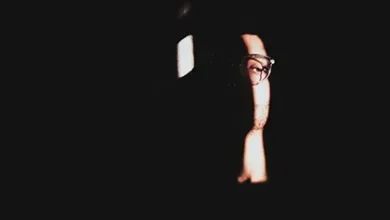The Poet’s Kingdom: Top 10 Literary Giants of Gemini

While novels and plays often grapple with the complex, fog-shrouded nature of human affairs—chaos that itself provides excellent literary material—poetry operates on a different plane. It can tap into pure perception and observed phenomena, wielding intuition and genius to directly unveil the world’s mysteries. Poetry is the ultimate art of language. And which sign, if not Gemini, is more renowned for its gift of gab, its innate vitality with words, and its passionate zeal for weaving linguistic tapestries? While others might labor painstakingly over a single couplet, a Gemini poet often conjures flawless verses with an effortless, almost magical, fluency.
We’ve noted before that both Gemini and Sagittarius are famed for producing poets. The Sagittarian poet often relies on a shamanic, divine inspiration, seeking a muse’s blessing through ritual. The Gemini poet, by contrast, is entirely self-originating. They collect the world’s experiences, allowing life’s miracles to operate directly through their minds, commanding language like a general commands an army. Sagittarius writes through solemn, singular focus; Gemini writes with adaptable, lightning-fast versatility. Since Sagittarius arguably employs external aid, the undisputed kingdom of poets belongs to Gemini.
Dante, Pushkin, Whitman, Thomas Hardy, Yeats, Pessoa, Lorca… What other zodiac sign can boast such a stellar, world-changing lineup? These are the founders of poetic traditions, the master synthesizers, the consummate artists of language. If Libra possesses the genius for the novel, then Gemini wields the divine gift for poetry. The literary world is no democratic republic; it seems the celestial muses show a distinct favoritism to the air signs.
Dante Alighieri (June 5, 1265) – The Divine Comedy
A poet who commands awe and reverence from all who follow. The debate over who stands as the central pillar of Western literature—Dante or Shakespeare—is a perennial parlor game. Yet, while novelists and playwrights might critique the “crudeness” of Shakespeare, few poets dare to find fault with Dante. The monumental three-part structure of Hell, Purgatory, and Paradise alone is staggering, but the sheer technical mastery of over 14,000 lines in terza rima extinguishes any thought of another poet surpassing him in epic scale. In terms of artistic genius, there is no evolution; Dante exists on a plane of his own. In artistry and symbolic depth, perhaps only Cao Xueqin (also speculated to be a Gemini) of Dream of the Red Chamber could compare. Dante mapped the soul’s eternal journey under God; Cao Xueqin pondered man’s inevitable fate under the emperor. A first tragedy is that Dream remains a fragment, leaving Dante without a true rival; a second is that its finest potential translator, Wu Xinghua, never completed his work, robbing us of the best chance to appreciate Dante’s grandeur in Chinese.
Alexander Pushkin (June 6, 1799) – Eugene Onegin
It’s often said Pushkin’s contribution to the Russian language is as profound as Dante’s to Italian or Goethe’s to German. Though once seen as a follower of Byron, Byron’s star in English literature has somewhat dimmed, while Pushkin’s only shines brighter, solidifying his status as the foremost figure of Russian letters. This enduring relevance speaks to the Gemini poet’s deliberate craftsmanship. Many poets, as Harold Bloom noted, scatter their stars lavishly, their talent so abundant they need not fret over each word. But talent alone dazzles briefly; a century later, it is the work’s ability to hold readers that matters. Translator Zha Liangzheng (Mu Dan) once said of Eugene Onegin: “Anyone who has read it is like a child who has tasted intensely rich honey—who wouldn’t want to read it two or three times more?”
Walt Whitman (May 31, 1819) – Leaves of Grass
Despite excellent translations, Whitman’s achievement is still underestimated by many Chinese readers. To some, he appears as an “American Guo Moruo,” oscillating between self-praise (“I celebrate myself, and sing myself”) and odes to leaders (“O Captain! My Captain!”). This misinterpretation obscures the profound thought and raw power within his verses. Whitman was a “cunning and subtle” poet who, faced with our crude misunderstandings, would “look with side-curved head curious what will come next, Both in and out of the game and watching and wondering at it.” A Gemini poet, a master of multifaceted expression, is never what they seem on the surface and always deserves a deeper, more thoughtful reading.
Thomas Hardy (June 2, 1840) – The Dynasts
Hardy’s monumental achievements in the novel—Tess of the d’Urbervilles, Jude the Obscure—need no elaboration from us. Their pacing is deliberate, their themes profound, the work of a true master. After these novels were viciously criticized, Hardy vowed to abandon fiction and devoted himself entirely to poetry. His verse, like his poetic novels, combines brilliance, intellect, and deep compassion, offering piercing insights into human nature with a conscious return to simplicity of form. Consequently, Hardy’s poetry suffers relatively little in translation. The Dynasts, his epic on the Napoleonic Wars, was a laborious and unappreciated undertaking in the 20th century. Its lack of modern republication confirms Hardy’s own famous adage: “The caller and the called rarely answer one another.”
Thomas Mann (June 6, 1875) – The Magic Mountain
Mann is renowned for his novels—The Magic Mountain, Buddenbrooks, Lotte in Weimar, Doctor Faustus—not his poetry. The Magic Mountain stands as one of the great triumvirate of modernism alongside Proust and Joyce. Harold Bloom argued that by the standards of Homer, Virgil, and Milton, the epic form is dead, yet he classified The Magic Mountain as a “prose epic.” Notably, at fourteen, Mann identified as a “lyrical-dramatic poet.” His epic style is as clean and structured as a German symphony. His position in German literature mirrors Hardy’s in English—straddling the classical and the modern, possessing an unhurried elegance, writing with a steady, almost verbose pace that tests a reader’s patience for high art.
W.B. Yeats (June 13, 1865) – Selected Poems
Yeats was a deeply “mystical” poet, far more so than our astrological musings here. We use as a tool to grasp the intangible; Yeats truly believed in his own supernatural gifts, earnestly arguing in his poetry for propositions like “the reality of ghosts.” Some might dismiss this as the mischief of a man driven mad by repeated romantic rejections. For many, Yeats is known primarily for one masterpiece of “adapted” love poetry, When You Are Old (cf. Ronsard’s Quand vous serez bien vieille). It was a lottery win from a two-yuan ticket. One might ask the average literary youth if they can name a second Yeats poem.
Fernando Pessoa (June 13, 1888) – Alberto Caeiro
This poet, sharing a birthday with Yeats, engaged in more benevolent mischief and displayed more conscious artistry. He created seventy-two “heteronyms”—full-fledged authorial personas with distinct biographies, appearances, and even interactions. Turning his literary career into a multi-character role-playing game, Pessoa’s mind operated on a godlike level. Reading him, one moment he feels like Nietzsche, the next Kafka, then Whitman. He can be whoever you perceive him to be, a creator of worlds, truly embodying his line: “My heart is a little larger than the entire universe.”
Federico García Lorca (June 5, 1898) – Song of Little Death
The poet Dai Wangshu once stated, “Poetry cannot borrow from music; it should rid itself of musical elements.” Yet, Lorca, whom Dai loved and translated, seems to refute this opinion with hard facts. How his ballads and cante jondo (deep song) were sung throughout Spain! “In the squares, in the taverns, in the village markets, beautiful songs were heard everywhere. Ask who wrote them, and the answer was often: Federico, or: I don’t know.” The musicality of Lorca’s poetry, its rhyme and rhythm meant for recitation, is a beauty largely lost in translation, akin to what happens to Li Shangyin or Li Yu’s poetry in English.
Joseph Brodsky (May 24, 1940) – From Petersburg to Stockholm
Chinese readers are more familiar with Brodsky’s prose talents (Less Than One, On Grief and Reason). Though often poetry criticism, it differs from scholarly analysis; it is oracular, offering unique, unforeseen insights. Crucially, his thought process isn’t a hidden puzzle but is laid bare, likely forged by a life that included work as a boiler stoker, a morgue attendant, geological expeditions, imprisonment, and exile. His reading was of the civilized world, but a wild vitality remained. His 200-line Elegy for John Donne stands in stark contrast to writers who only reveal fragments of themselves.
Bob Dylan (May 24, 1941) – Bob Dylan: The Lyrics 1961-2012
Bob Dylan’s 2016 Nobel Prize in Literature sparked widespread debate. However, the Swedish Academy saw no scandal in a singer-songwriter winning, citing ancient bardic traditions and elevating him to the heights of Blake, Rimbaud, Whitman, and Shakespeare. While I adore Dylan’s music, whether his literary achievement equals Whitman’s or Shakespeare’s is debatable; perhaps his fanbase size is comparable. Regardless, if Gypsy ballads and cante jondo qualify as poetry, why not American folk? In the Gemini poetic kingdom, Bob Dylan has certainly earned his place at the table.






